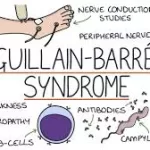In a significant breakthrough, researchers have unveiled a rapid diagnostic test that promises to revolutionize the fight against melioidosis, a neglected tropical disease claiming the lives of thousands annually. The test, leveraging CRISPR technology, can diagnose patients within hours rather than days, potentially saving countless lives by ensuring prompt administration of the correct antibiotics.
The groundbreaking research, led by scientists at the Mahidol-Oxford Tropical Medicine Research Unit (MORU), Chiang Mai University, Vidyasirimedhi Institute of Science and Technology (VISTEC) in Thailand, and the Wellcome Sanger Institute in the UK, offers a glimmer of hope in the battle against melioidosis. Published in Lancet Microbe, the study unveils a rapid, easy-to-use diagnostic test dubbed CRISPR-BP34, which boasts an impressive 93% sensitivity in detecting Burkholderia pseudomallei, the bacterium behind melioidosis.
Melioidosis, a deadly tropical disease prevalent in tropical and subtropical regions, often evades diagnosis until it’s too late, claiming the lives of more than half of its victims. With an estimated 89,000 deaths annually out of 165,000 infections worldwide, the urgency for a rapid and accurate diagnostic tool cannot be overstated.
“Currently, melioidosis is diagnosed in patients after bacterial samples are cultured, which takes three to four days,” explained the researchers. “This delay in diagnosis is often fatal, particularly in rural areas where the disease is endemic.”
The CRISPR-BP34 test offers a ray of hope by delivering results in less than four hours for urine, pus, and sputum samples, and within one day for blood samples. This remarkable turnaround time represents a significant improvement over the conventional bacterial culture method, potentially saving countless lives by enabling swift administration of appropriate antibiotics.
“This new rapid diagnostic test will enable health professionals to prescribe the correct antibiotics faster, meaning fewer patients will die while waiting for a diagnosis,” noted the researchers. “It will also save resources and money, with fewer unnecessary antibiotics prescribed and less time for patients in hospital.”
The development of CRISPR-BP34 involved rigorous research, including the analysis of over 3,000 B. pseudomallei genomes to identify a genetic target specific to the bacterium. The test combines recombinase polymerase amplification to amplify bacterial DNA with CRISPR technology for enhanced sensitivity and specificity.
Dr. Claire Chewapreecha, co-lead author at MORU and Wellcome Sanger Institute International Fellow, expressed pride in the team’s achievement, emphasizing the potential of the test to save lives globally. Dr. Somsakul Wongpalee, co-lead author at Chiang Mai University, highlighted the test’s outstanding diagnostic efficacy and its potential to impact patient outcomes positively.
Professor Nick Thomson, senior author at the Wellcome Sanger Institute, hailed the research as a testament to international collaboration and the transformative power of genomics in clinical intervention. Professor Nick Day, senior author at MORU and the Wellcome Trust Thailand Asia and Africa Programme, emphasized the urgency of early diagnosis in combating melioidosis, dubbing the new test a potential game-changer.
The rapid diagnostic test is poised to undergo further validation in clinical settings through randomized trials, offering hope for a brighter future in the battle against melioidosis. With its potential to save lives and alleviate the burden of this deadly disease, CRISPR-BP34 stands as a beacon of hope in the fight against neglected tropical diseases worldwide.










